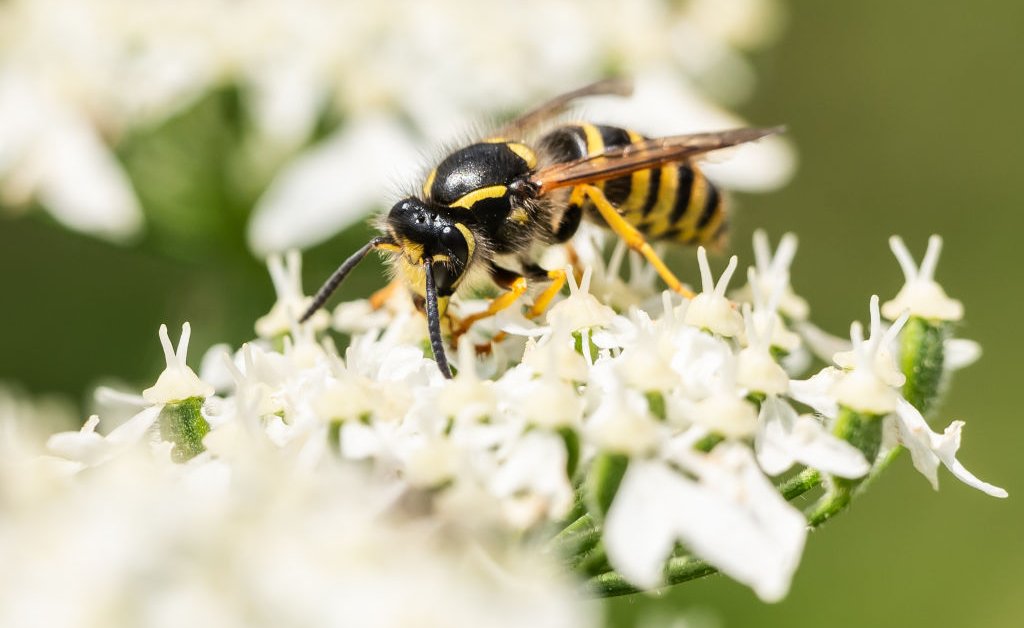Climate Change: Altering Summer Insect Life Cycles

Welcome to your ultimate source for breaking news, trending updates, and in-depth stories from around the world. Whether it's politics, technology, entertainment, sports, or lifestyle, we bring you real-time updates that keep you informed and ahead of the curve.
Our team works tirelessly to ensure you never miss a moment. From the latest developments in global events to the most talked-about topics on social media, our news platform is designed to deliver accurate and timely information, all in one place.
Stay in the know and join thousands of readers who trust us for reliable, up-to-date content. Explore our expertly curated articles and dive deeper into the stories that matter to you. Visit Best Website now and be part of the conversation. Don't miss out on the headlines that shape our world!
Table of Contents
Climate Change: Altering Summer Insect Life Cycles and Ecosystem Stability
Summer. The season of sunshine, long days, and… insects. But climate change is subtly, yet significantly, altering the life cycles of these crucial creatures, with potentially devastating consequences for our ecosystems. This isn't just about annoying mosquitos; it's about the intricate web of life, and the role insects play in pollination, decomposition, and the food chain.
The rising global temperatures driven by climate change are impacting insect life cycles in several key ways:
Earlier Emergence and Extended Seasons
Warmer springs are causing many insect species to emerge from hibernation or pupation earlier than they traditionally would. This seemingly minor shift can have cascading effects. For instance, if a key pollinator emerges before its host plant is ready to flower, pollination rates plummet, impacting plant reproduction and potentially leading to food shortages for animals dependent on those plants. Conversely, extended summers allow for multiple breeding cycles, leading to population booms of certain species and potentially disrupting existing ecological balances. This is especially concerning for agricultural systems, as pests can experience increased reproductive success, leading to greater crop damage and increased reliance on pesticides.
Altered Geographic Distributions
As temperatures rise, some insect species are shifting their geographic ranges, moving towards higher altitudes or latitudes in search of suitable habitats. This range expansion can lead to competition with existing species and disrupt established ecological communities. Invasive species, often thriving in warmer conditions, may also benefit disproportionately from climate change, potentially outcompeting native insects and impacting biodiversity. The potential for the spread of disease vectors is also a significant concern, with warmer temperatures expanding the range of mosquitos and ticks capable of carrying harmful diseases.
Mismatched Life Cycles
One of the most significant challenges posed by climate change is the disruption of synchronized life cycles. The intricate timing of interactions between insects and other organisms—like predators, prey, and host plants—is finely tuned. When climate change alters the timing of these events, it can lead to mismatches, with devastating consequences. For example, if a bird species relies on a particular insect for food, but the insect emerges earlier due to warmer temperatures, the bird may miss its crucial food source, resulting in reduced reproductive success or even population decline.
The Ripple Effect: Ecosystem Instability
These changes in insect life cycles aren't isolated events. They ripple through entire ecosystems. Reduced pollination can impact plant diversity and food production. Changes in insect populations can affect the survival of birds, reptiles, amphibians, and mammals that depend on them for food. The decomposition process, crucial for nutrient cycling, can also be disrupted by altered insect activity. The consequences are far-reaching and underscore the interconnectedness of life on Earth.
What Can We Do?
The scientific community is actively researching the impacts of climate change on insect populations. Conservation efforts focusing on habitat preservation and restoration are crucial. Furthermore, mitigating climate change through reducing greenhouse gas emissions remains the most critical step in protecting insect biodiversity and the stability of our ecosystems. Supporting sustainable agricultural practices can also play a role in reducing the negative impacts of climate change on insect populations. Understanding and addressing this critical issue is vital for ensuring the health of our planet for future generations.
Further Reading:
This article is intended for informational purposes only and does not constitute professional advice. For specific concerns, consult relevant experts.

Thank you for visiting our website, your trusted source for the latest updates and in-depth coverage on Climate Change: Altering Summer Insect Life Cycles. We're committed to keeping you informed with timely and accurate information to meet your curiosity and needs.
If you have any questions, suggestions, or feedback, we'd love to hear from you. Your insights are valuable to us and help us improve to serve you better. Feel free to reach out through our contact page.
Don't forget to bookmark our website and check back regularly for the latest headlines and trending topics. See you next time, and thank you for being part of our growing community!
Featured Posts
-
 El Regreso Triunfal De Angela Marmol A Tik Tok Despues De Su Encuentro Con Tom Cruise
May 30, 2025
El Regreso Triunfal De Angela Marmol A Tik Tok Despues De Su Encuentro Con Tom Cruise
May 30, 2025 -
 Is Wwe About To Upstage Aew Again New Report Details Plans
May 30, 2025
Is Wwe About To Upstage Aew Again New Report Details Plans
May 30, 2025 -
 Follow Live King Charles Delivers Throne Speech In Canadian Parliament
May 30, 2025
Follow Live King Charles Delivers Throne Speech In Canadian Parliament
May 30, 2025 -
 Roland Garros 2024 A Review Of The Tournaments Highlights And Lowlights
May 30, 2025
Roland Garros 2024 A Review Of The Tournaments Highlights And Lowlights
May 30, 2025 -
 Who Will Win French Open Mens Day 5 Match Predictions And Analysis
May 30, 2025
Who Will Win French Open Mens Day 5 Match Predictions And Analysis
May 30, 2025
